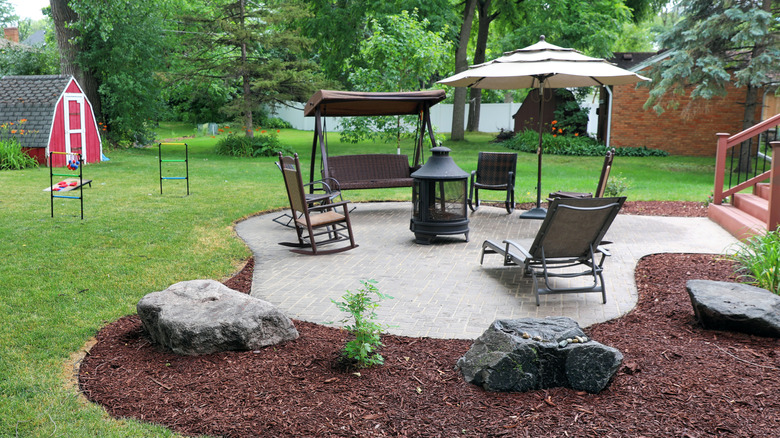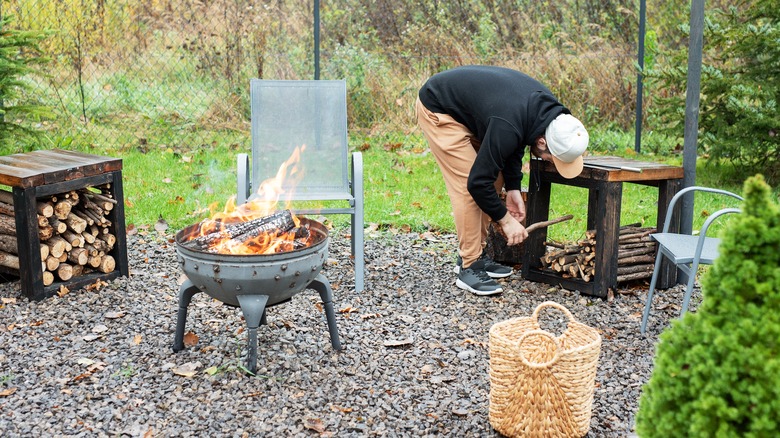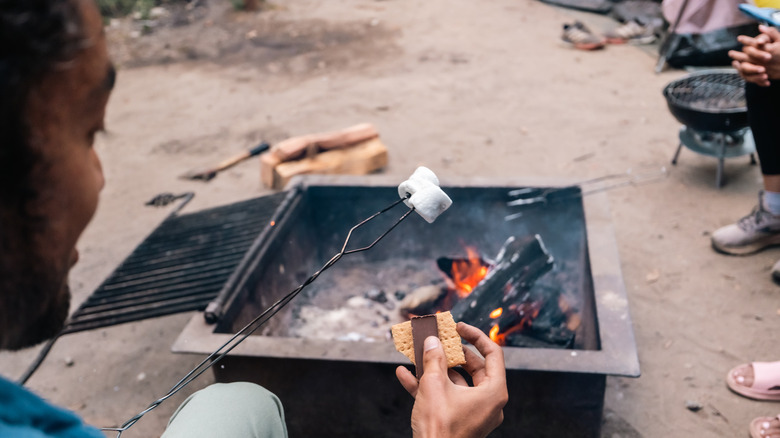The Common Backyard Feature That's Unexpectedly Attracting Pests
When you imagine spending idyllic summer days enjoying your backyard, you probably envision listening to tunes, roasting marshmallows, and maybe even a friendly game of catch. You likely don't think of the pests that can easily ruin your summer fun and even cause severe damage to your property. Unfortunately, firepits and the firewood piles often accompanying them can quickly become a breeding ground for insects, spiders, and even rodents.
As unpleasant as a nest of mice or rats in your woodpile may be, termites and carpenter ants are arguably the bigger concerns, as they can quickly move from eating your firewood to eating your home and other structures. Termites can live in most states, but they are most common in the southeastern United States, as they prefer warm and humid climates. Black carpenter ants (Camponotus pennsylvanicus) live throughout the eastern United States, while other species of carpenter ants, including C. modoc and C. vicinus, are common in the western US. While there may not be many parts of the country that are safe from destructive wood-eating pests, there are steps you can take to prevent your woodpile and fire pit from turning a dream home into a nightmare.
Preventing pests in fire pits and woodpiles
Preventing pests doesn't mean you have to give up on your dream of having a fire pit in your outdoor living space. Some simple tips can go a long way to preventing your backyard fire pit and woodpile from becoming a home to rodents and insects. Never store your firewood indoors, and when you're deciding on a location for your fire pit and woodpile, make sure they're both several yards away from your house and other structures. This doesn't just discourage bugs from getting into your home. It's also good fire safety.
Additionally, avoid storing your stack of firewood directly on the ground. Instead, raise it up slightly on a platform and cover it with a tarp. Provide as much airflow as possible to encourage the wood to stay dry, as rotting wood is a pest magnet. Wet wood also doesn't burn as well and can turn your backyard bonfire into a smoky mess.
Remember to clean up after your bonfire
While a bucket of water is essential for fire safety, standing water can quickly become a haven for mosquito larvae. Some fire pits with solid concave bottoms can also fill with water following rainstorms. Clemson Cooperative Extension states that it only takes five days for as little as a tablespoon of standing water to become a potential breeding site for mosquitoes. So be sure to dump any water that accumulates in your fire pit after extinguishing your fire. Don't forget to empty any water buckets as well. Keep a cover or tarp over your fire pit when it's not in use to prevent rain from getting in.
As fun as it is to make s'mores and other goodies around a campfire, those treats should be for you and your guests, not the local wildlife. So after you've finished with your festivities, be sure to sweep or hose down any crumbs that remain. By limiting food and water sources in your yard, you can keep mosquitos away from your home and make your firepit and the surrounding area less appealing to pests and far more fun for you and your family.


